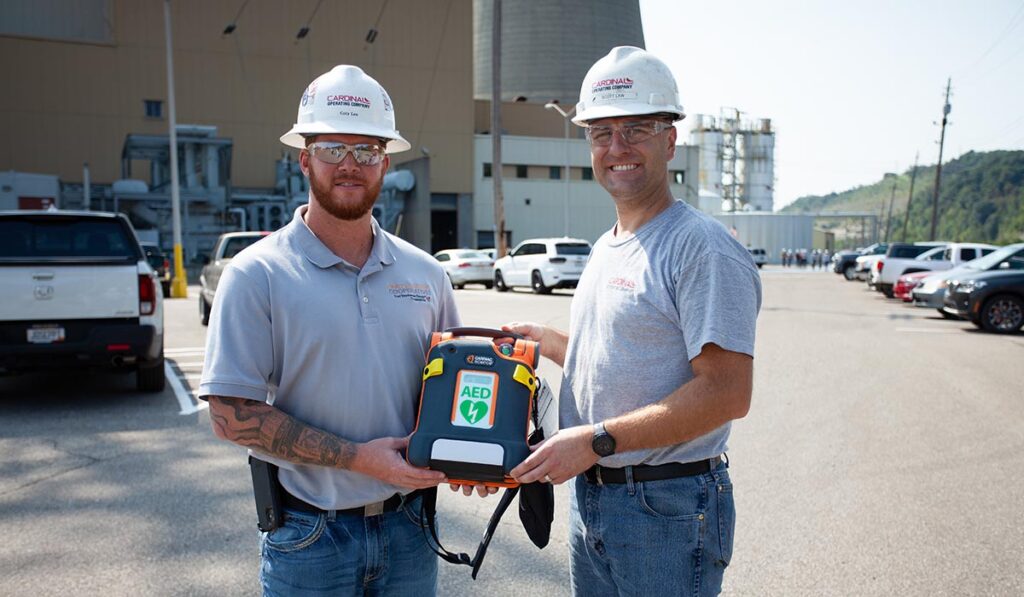
A routine staff meeting at an Ohio electric cooperative power plant turned into a surprise award ceremony for a pair of employees who were honored by the American Red Cross for saving the life of a contractor who had gone into cardiac arrest.
“We were shocked and overwhelmed,” said Coty Lee, safety and health supervisor at the Buckeye Power’s Cardinal Plant in Brilliant. “It’s definitely very appreciated, but we didn’t do this for any recognition.”
Last summer, Lee and Scott Law, fire protection and security specialist, jumped into action when a contractor collapsed after climbing up a flight of stairs from an underground coal tunnel. Law took the “downed man” call from a contractor supervisor and notified Lee, who rushed to the scene, grabbing an AED device on the way.
“I was probably 300 yards away,” said Lee, who, like Law, is an experienced emergency medical technician. “I did a quick assessment, confirmed he was in cardiac arrest and immediately started CPR. Scott applied the AED, and the control room alerted the first aid team,” the plant’s in- house safety squad, who also arrived on site.
The pair administered four rounds of shock from the AED and performed CPR for roughly 15 minutes until the Brilliant Volunteer Fire Department arrived. Shortly after the contractor arrived at a local hospital, he regained his pulse and began breathing on his own, they said. He returned to work at Cardinal Plant about four months after the incident.
Safety is a core value at Cardinal Plant, said plant manager Bethany Schunn, who nominated Lee and Law for the award. The plant’s first aid team undergo CPR and AED recertification each year, instead of the industry standard of every two years. “Our team goes above and beyond the requirements,” Schunn said.
Lee and Law are using the publicity—a reporter from a local television station interviewed them after the February award ceremony—to emphasize the importance of training.
“Even if you’re not trained, if you ever see somebody go into cardiac arrest, doing something is better than nothing because when you do CPR, you’re physically pumping the blood for that person,” Law said. “A lot of people don’t feel comfortable doing chest compressions because they’ve never done it, or they’re not certified. But even if you do CPR wrong, it’s better than not doing anything at all.”
Victoria A. Rocha is a staff writer for NRECA.